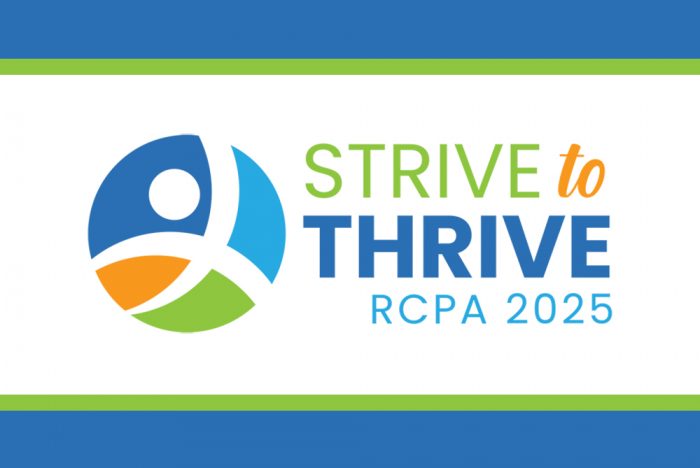The RCPA 2025 Conference Strive to Thrive is just two weeks away, and online registration officially closes THIS Friday, August 29, 2025. Register today and reserve your spot at the Hershey Lodge September 9 – 12 for the latest in practices and products in health and human services! By registering online, you gain access to:
- Over 60 workshops covering all divisions in health and human services, totaling over 110 hours of Continuing Education credits;
- Early access to the RCPA Conference mobile app, complete with summer webinars and the ability to create your schedule in advance;
- A great opportunity to meet sponsors and exhibitors to discuss the latest products and services in our Connections Hall; and
- A seamless on-site check-in process — get your badge without the hassle of registering on-site and start your conference experience off strong!
View our Registration Brochure for complete details, including booking your hotel room, event highlights, and networking opportunities!
Online Registration Closes THIS Friday!
Register Today!











 View the complete agenda and create your individualized schedule of workshops to visit;
View the complete agenda and create your individualized schedule of workshops to visit;


 With a little less than a month before kick-off, RCPA is excited to announce a new keynote speaker in our lineup at the 2025 Annual Conference Strive to Thrive! We will now be kicking off our conference with Al Guida, JD, Owner of Guide Consulting Services, Inc., to discuss Impacts of Federal Issues on the Human Services System. Guida is a nationally recognized advocate and strategist who has provided valuable federal policy and regulatory solutions for Guide Consulting Service’s health care clients in the provider, technology, and public health sectors. He has helped clients realize measurable goals in mental health parity, biomedical research, child poverty, and child welfare, and his legislative portfolio includes successful collaborations with major Congressional committees, the Department of Veterans Affairs, and the Department of Health and Human Services. Working together, the Guide Consulting Services team have established and secured funding for Mental Health First Aid, Certified Community Behavioral Health Clinics, and the 988 National Suicide Prevention Coordinating Office. In 2024, Guida was recognized as one of DC’s 500 Most Influential People.
With a little less than a month before kick-off, RCPA is excited to announce a new keynote speaker in our lineup at the 2025 Annual Conference Strive to Thrive! We will now be kicking off our conference with Al Guida, JD, Owner of Guide Consulting Services, Inc., to discuss Impacts of Federal Issues on the Human Services System. Guida is a nationally recognized advocate and strategist who has provided valuable federal policy and regulatory solutions for Guide Consulting Service’s health care clients in the provider, technology, and public health sectors. He has helped clients realize measurable goals in mental health parity, biomedical research, child poverty, and child welfare, and his legislative portfolio includes successful collaborations with major Congressional committees, the Department of Veterans Affairs, and the Department of Health and Human Services. Working together, the Guide Consulting Services team have established and secured funding for Mental Health First Aid, Certified Community Behavioral Health Clinics, and the 988 National Suicide Prevention Coordinating Office. In 2024, Guida was recognized as one of DC’s 500 Most Influential People. Following Al Guida will be Pennsylvania’s DHS Secretary Val Arkoosh. Attendees will shift their focus from the federal level to the state, with the DHS Secretary highlighting key issues facing PA providers, including trends, impacts of federal policy at the local level, and current initiatives related to Performance-Based Contracting and value-based purchasing.
Following Al Guida will be Pennsylvania’s DHS Secretary Val Arkoosh. Attendees will shift their focus from the federal level to the state, with the DHS Secretary highlighting key issues facing PA providers, including trends, impacts of federal policy at the local level, and current initiatives related to Performance-Based Contracting and value-based purchasing.